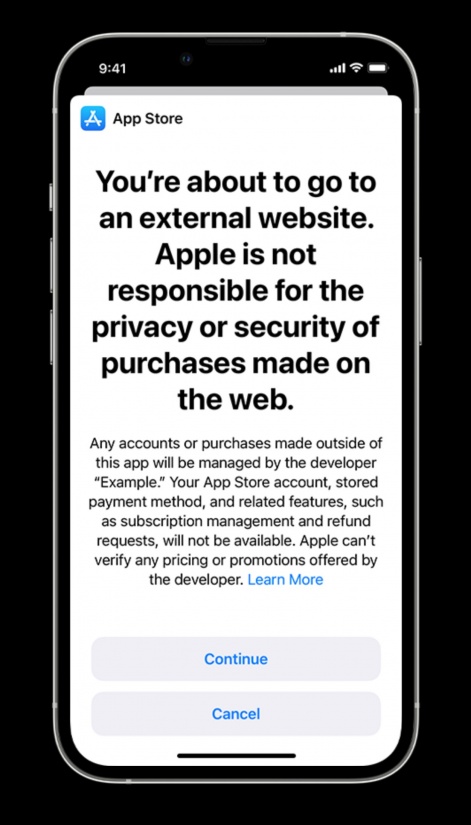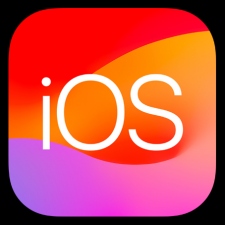After stating the obvious- that Apple would be kicking back hard against the European Union's Digital Markets Act - last night Apple dropped its latest bombshell rule change to keep its cash flowing inwards while adhering to the letter of the law by a whisker.
Their new “Apple announces changes to iOS, Safari, and the App Store in the European Union” document on their newsroom site goes most of the way to explaining just what they’ll intend to do in response to and in advance of the DMA regulations coming into effect on March 6, 2024.
We, and industry watchers worldwide, had been anticipating Apple’s response to what amounts to a complete reversal of policy and fortune in Europe, and this document spells out exactly what that response is. Or at least what Apple are now hoping will quietly pass into being the new norm.
What it all means
Effectively the introduction of the Digital Markets Act in Europe (this in no way affects Apple’s ongoing policy in the States or anywhere else) forces Apple to allow third-party app stores onto iOS (and its iPad OS spin-off) for the first time. The move means that Apple no longer controls everything that goes onto its devices and the European Government who oppose such monopolies are appeased.
Job done.
As to how Apple is going to do that… Well, that’s what’s just been revealed.
From iOS 17.4 (coming soon) users will be able to download new app store apps from a service’s website. Once installed they’ll appear exactly as per any other app on your device and - once you’ve granted it permission to do so - it too will be able to put apps onto your device as you browse and select with them.
You can even set such stores as your new default so when you go app hunting your favourite new source will appear.
Worth saying that while this first app - the app store - will be subject to all of Apple’s rigorous checks, ensuring that no malware will climb onboard your phone and Apple’s reputation for security and quality of service remains resolutely intact, once you grant that app permission to install further apps, all bets regarding whatever it puts on your phone, are off. And - of course - Apple have created a helpful 'scare screen' to ensure that users are in no doubt as to what pre-App Store Wild West peril they're putting themselves in.

Apple still want control
But don't assume that Apple are dusting off their palms and walking away.
Apple are - to the letter of the new changes - insisting that a) All apps are checked and scanned by them for malware and that b) Only one version of each app is allowed to exist across all app stores - maintaining some level of order, rather than rolling over and welcoming the chaos that they’re obviously predicting.
All apps will now be ‘notarized’ by Apple in order to be allowed through. After all, the delivery of such apps will still be done via Apple’s systems. It remains to be seen as to whether this ‘all in good faith’ apparently harmless Apple notarization process passes DMA muster or may be seen as a power grab that exceeds the ruling.
Content wise however, Apple is stepping back totally. Apps that the new App Stores can download can therefore directly violate existing App Store guidelines for the first time. In short, think of an App - no matter how bizarre or inflammatory - and you can now make it and put it on an iPhone (be that through your own app store or a partner’s) with Apple not able to put in a block at any point, all in the name of European freedom.
But what about the money?
The letter of the DMA law could (and did up until yesterday) mean that developers would pay absolutely zero to Apple in order to reach an iOS end user and all their subsequent spending. But Apple now has a plan for that.
Now apps that are delivered via alternative App Stores and opt for an alternative payment system will pay a 17% commission to Apple - down from their famous 30% cut. Though if the dev qualifies for their small business rate, that falls even further to 10%.
Such apps can, of course, continue to use Apple’s service for receiving payments through Apple IDs and accounts and for that there’s a new 3% ‘processing fee’ on top of these new 17%/10% fees.
So far so ‘good’ but here’s where the real kickback comes.
Taking a leaf out of Unity’s Runtime Fee brainwave, Apple has devised a way to get paid properly should your app really start to make it big. The company is introducing a new Core Technology Fee which charges developers €0.50 per annual app install once an app passes one million annual installs in the EU.
So that’s a one-time fee of €0.50 to Apple each time a user over one million users installs your app. And Apple can charge that again if the same user reinstalls it again a year later.
And - as if admitting that all of the new smallprint and fees are purely to maintain their cash flow (and almost borrowing Unity’s wording to the letter) - Apple estimates that 99 percent of developers will “reduce or maintain the fees they owe to Apple” and that “less than 1%” of developers would ever pay the Core Technology Fee.
What’s it all about?
It’s all about Apple hanging onto its highly lucrative app business and going as far as it can to ensure business as usual. And while the above would appear to circumvent the DMA laws - essentially dreaming up new ways to get paid instead of the straight and simple 30% cut - it remains to be seen as to whether legal challenges will a) take place at all and b) ever be successful.
Also the way the fees are structured with options available at every turn - each with maths and individual app cases to consider - means that some (most?) developers will be left making finger-in-the-air predictions at best or simply saying "Let's just stick with Apple's 30% and forget about it." At least, that's what Apple will be hoping.
As to whether that happens, or whether there is appetite enough to really upset the status quo and potentially even see similar policy switches kick in the US and interntionally, remains to be seen.
For now, and until further protest and litigation at least, Apple’s money train continues rolling.






















